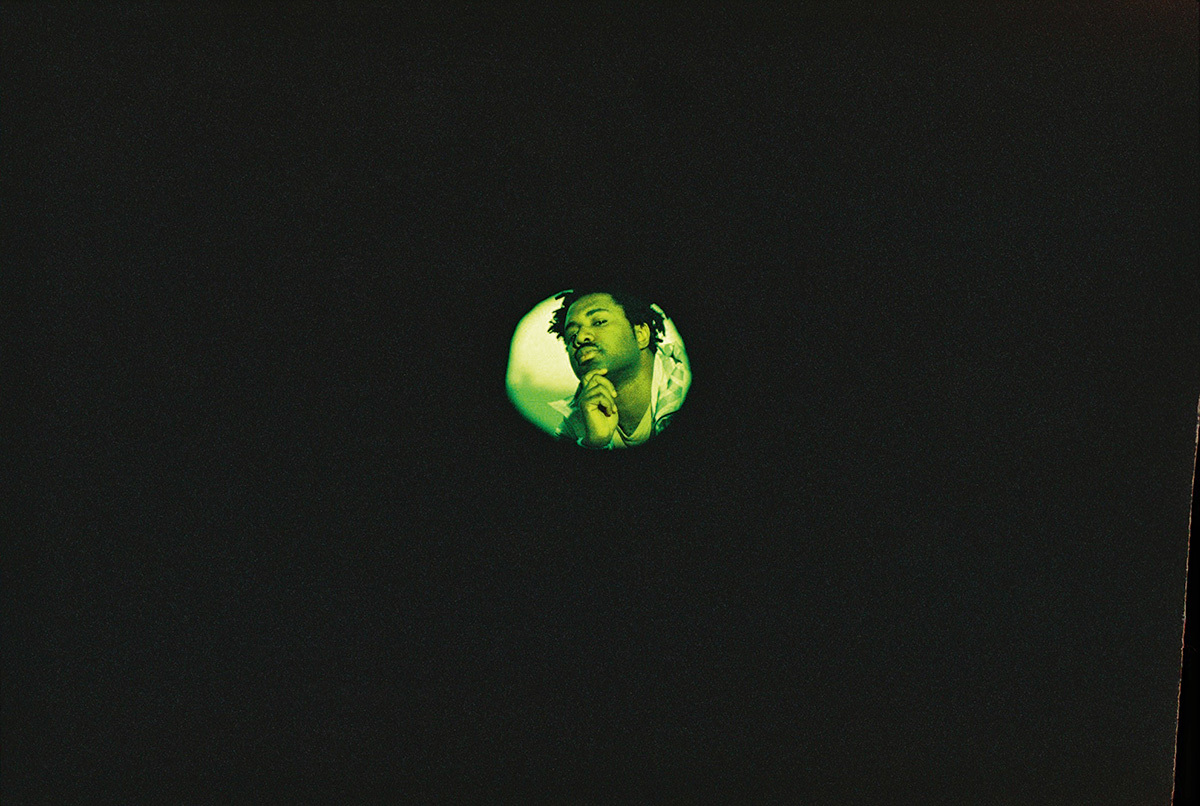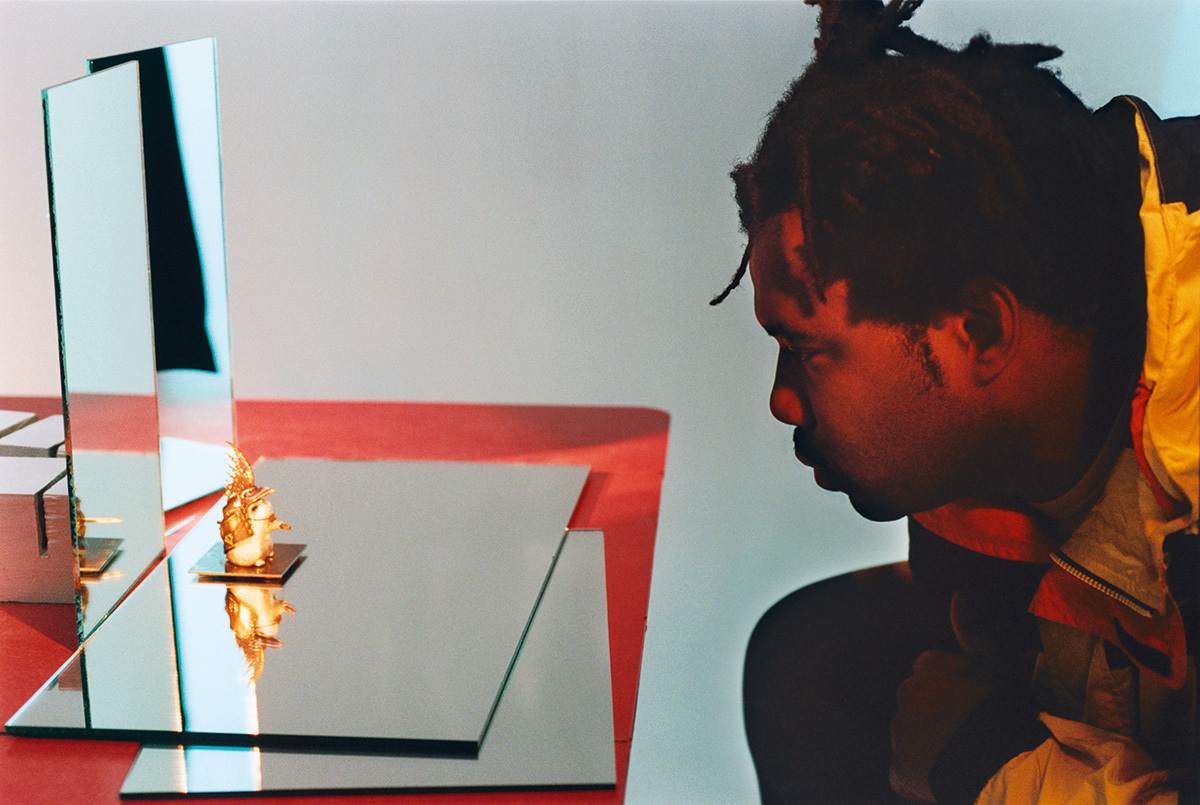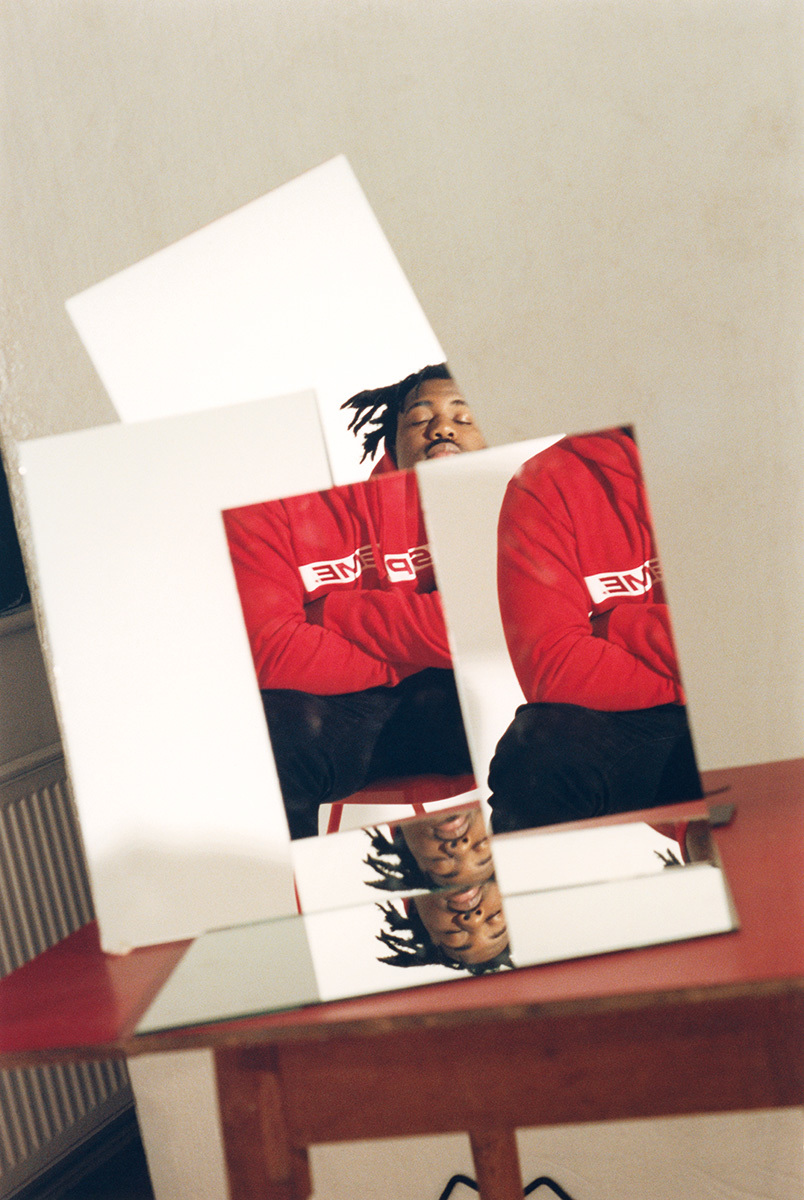For a name as lauded as Sampha Sisay’s, it’s hard to believe that 2017 marks the release of his first full LP, Process. Maybe it’s because listening to his music, you feel like you know him intimately. His vocals rip through the melodies and emotion looms over every note he sings. We first met him seven years ago, as the elusive voice on top of the beats of producer SBTRKT. He then struck out on his own, making an impression with EPs Sundanza (2010) and Dual (2013) on the Young Turks imprint. These releases caught the attention of a list of collaborators that reads like the who’s who of modern music’s most celebrated young talents: FKA Twigs, Frank Ocean, Solange Knowles. They all saw the potential in Sampha, arguably before he saw it in himself.
Hopes were high, but life, with all its unforeseen circumstances, had a different plan for the 27-year-old south Londoner. Binty, his mother, whose cancer had previously been in remission, had her illness come back. Only this time, it was more aggressive. So Sampha put his musical plans on pause to move back to their family home to care for her. Binty lost her fight with cancer in September 2015, leaving Sampha, the youngest of five brothers, devastated. His mother’s passing is at the core of Process, an incredibly emotive 40-minute journey through his joy, his fear, his pain, and his loss.

“I was back at my mom’s house recently and I was going through old nursery reports. At that age, they observe you and write down everything in detail. There’s a whole paragraph in one of them that says, ‘Sampha was making a monster out of playdough and the head fell off, so he put it back on and it fell off, and he put it back on and it fell off again, then he looked at it, squeezed it and put it back on.’ I’m so persistent. They all also noted how quiet I was in circle time but how comfortable I was speaking to adults, I think that’s still a true reflection of how I am now,” he says as he fiddles with a cup of herbal tea at a café near where he lives now, in Willesden, with his girlfriend Jojo. He’s quiet, speaking in hushed tones that grow to a hearty chuckle when he finds something funny. He grew up in Lower Morden in a Sierra Leonean household that provided what Sampha describes as “an encouraging environment.” “You know, as a child I felt very looked after. My mother was quite a quiet person too. I hate the word ‘traditional’ but she definitely cared a lot about me. She made sure I was well fed and went to school… all the things I appreciate more now,” he explains.
His brothers passed down a love of music. Everything from the sounds of Herbie Hancock, James Brown, Groove Armada, and The Clash met Sampha’s ears. His brother Sanie, particularly had an influence. He produced music and had a small studio set up at his flat a few roads away. Sampha’s father passed away when he was young, but when he was alive, he bought the house a piano that Sampha cherished, often spending hours tinkering with its keys — discovering a release in his new found musical storytelling.
Sampha had a short stint in Chester University studying Music Production, but found the course limiting. “I actually wasn’t very good at writing or academic work,” he laughs. “I just don’t work well when I have to write in a certain way. I also think it was where I was — I don’t think I was surrounded by like-minded people.”

Instead, Sampha returned to London and started dabbling in music with SBTRKT (who he met through MySpace) who lived close by in Tooting Bec. Binty, fretful about the uncertainty of a music career, lovingly let Sampha do his thing. “[SBTRKT and I], we just vented, really. I didn’t have the tunnel vision he had, I just liked making music. It was very unspoken what we were doing. I was comfortable with him and what we were creating.”
SBTRKT’s unwavering creativity rubbed off on Sampha, who alongside his own music releases and touring with SBTRKT, started collaborating with Drake on 2013’s “Too Much” and Kanye West’s “Saint Pablo.” But the jump from behind the music to center stage was something he wasn’t wholly prepared for. “The switch from producer to singer was more difficult than I imagined. The hardest thing was being seen and being heard. Now it is something I treasure, it’s something that is unique to me. But it’s not something I think I appreciated before. Sometimes it’s easier to work on my own stuff than it is to work with other people’s, but sometimes vice versa. I do spend a lot more time laboring over my own music and paying more attention to detail as I don’t have to answer to anyone in the same way.”
Working with Kanye West and seeing the confidence he had in his work gave Sampha the confidence to begin work on Process. Written over the course of two years, Sampha wrote 40 songs before, “like chipping at an ice block,” he whittled them down to a succinct ten tracks. His lyrics are never literal, they instead tell a story within a story, building on layered metaphors and abstract sonography to emotionally capture your heart from the very first beat. With opening track “Plastic 100c,” Sampha harrowingly recalls the trauma of finding a lump in his throat — a bleak threat to the future of his career. “With the lump, I had never had that feeling before, that very physical feeling of something being wrong.” The lyrics liken the physical pain as well as the emotional stress and anxiety to heat, ‘it’s so hot I’ve been melting out here, made out of plastic out here,’ he sings. “That just came out actually,” Sampha reveals. “I don’t really write a single word when I write, things just flow out of my mouth. I try to translate what I write to something I can see. With ‘Plastic,’ I could see a very blue sky, a very circular yellow sun…”

“Blood on Me” follows and sees Sampha meditate on the extremes of his anxiety. “It’s quite simply about running away,” he describes, “about being scared. It’s quite universal in its feeling… creepy almost.” Repetitive and enduring, it draws parallels to the relentless pace of Nina Simone’s “Sinner Man” and plays like a dream you can’t get out of. A gentler, more exuberant moment on Process come via “Kora Sings,” the transcendental and experimental third track on the album, all clashing beats and woozy vocals. “I had been listening a lot to the Malian singer Oumou Sangaré and started researching African instruments. I literally just jammed with a kora player on my synthesizer and built out the song out of a 12 minute jam.”
The jewel in Process‘s crown comes by way of “Nobody Knows Me (Like the Piano),” written in reference to the piano that still sits in his childhood home. Its sadness is palpable; the harrowing ballad was penned both pre and post his mother’s passing and was the emotional catharsis he needed. Sampha is still visibly grieved when his mother’s brought up. He looks down and says, “I can feel very numb sometimes. Life can be very banal but it really is the most extraordinary thing, you just don’t walk around like that everyday.”
Process is a meditation on Sampha Sisay’s life thus far. It’s painfully honest at times, and listening to it stays with you long after you have left it. It’s authentic, intimate, sobering, and hauntingly beautiful all at the same time. Experimental arrangements, tinkling percussion, and a cacophony of rich, ambient sounds (everything from Moon landings to the subtle patter of rain) buoy the album when Sampha’s piercing vocals aren’t there.

p.p1 {margin: 4.2px 0.0px 0.0px 0.0px; font: 7.0px Helvetica} span.s1 {font-kerning: none}
Hoodie Supreme. Jeans AG Jeans.
The album will make Sampha a star, albeit an unlikely one. Fame wasn’t something he had really considered up until this point. “In my head I never thought I was going to be famous. That doesn’t make sense in my head. The music that I am making, I’m pretty sure it isn’t the sort of music that makes you famous. At the same time, I don’t want to be naive. I very much have a face, I use my real name, I sing personal songs that people connect with and people very much identify with.” Most of this year will see Sampha on the road, taking Process to the live stage, and giving his growing number of fans a more intimate look into the window of his soul. “When I toured with SBTRKT, I earned stripes. The hard parts for me were talking to the crowd, I found that really hard. I hadn’t even really gone to a festival before so it was a real exploration of self Seeing people’s reactions [at a live show], there is something quite weighty about that. I think going on tour now [with Process] is going to be a bit different; you know, with my own band set up, the visuals… but I am really looking forward to more people listening to my music and relating to me a little bit more,” Sampha asserts.
Process is so-called as a nod to the meticulous way Sampha approaches his work. He’s considered, always “trying to perfect things in [his] head before speaking on them.” Shying away from the spotlight, and the usual trappings of the industry, he avoids glitzy music events and awards shows and spends his time looking introspectively — “quietly try to figure things out, to express a mood, or a feeling.” The space between him gradually getting to know himself and getting something out physically was “the process of dealing with my emotions.”
“I knew with Process I wanted to take my time. I wasn’t emotionally ready before. I knew my view on the world was fuzzy. Then there came a moment where I was ready to take things on and to let people know…” The beauty in the album isn’t just about the end product, it’s about the journey Sampha took to get there. It wasn’t easy; Sampha endured more than a lot of people do in a lifetime, but channeled his pain into something beautiful — something that can now soothe others.
Read: Sampha steps out on his own to deliver a defiant debut album.
Credits
Text Lynette Nylander
Photography Hanna Moon
Styling Max Clark
Grooming Mari Ohashi at LGA Management using Bumble and bumble. Set design Suzanne Beirne at D+V Management. Photography assistance Alessandro. Styling assistance Bojana Kozarevic. Grooming assistance Anna Payne.
